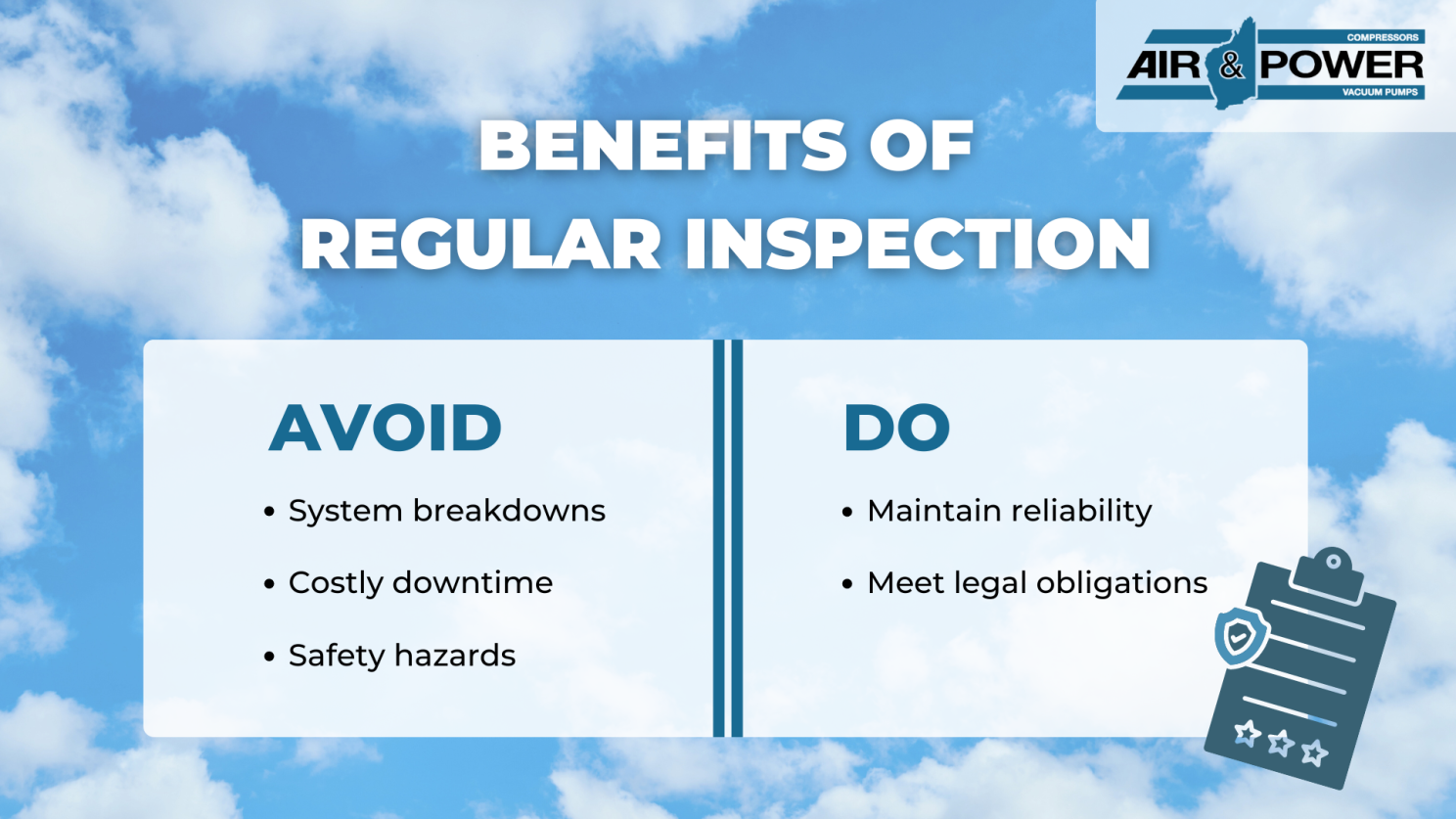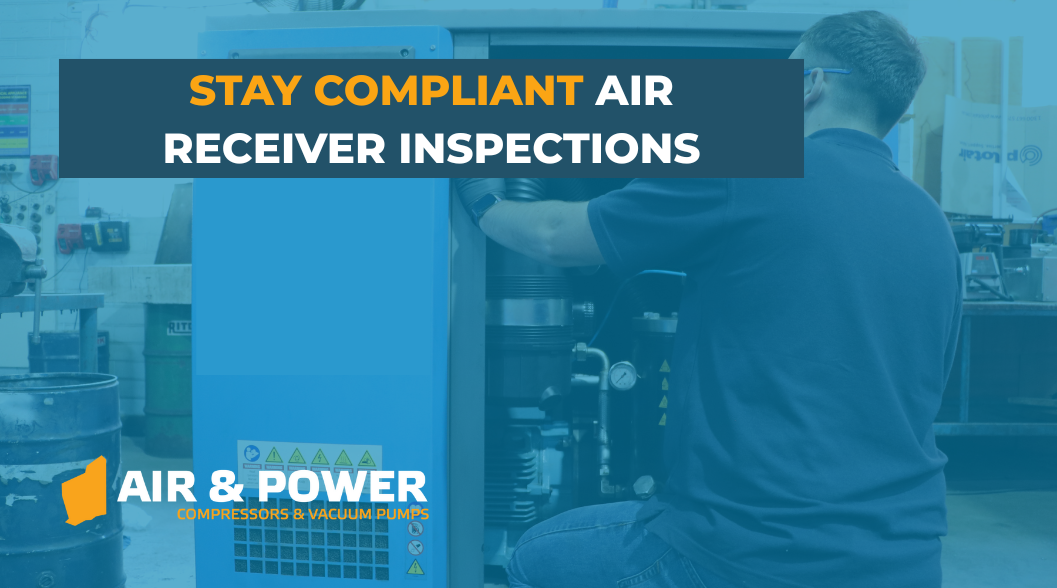Maintaining the safety and compliance of your air receiver is a key responsibility for any business using compressed air systems. Over time, factors like corrosion, wear, and pressure fluctuations can affect the integrity of air receivers, potentially leading to serious safety risks, including pressure vessel failure. Regular air receiver inspections are not only crucial for safety but are also required by Australian regulations.
Importance of Air Receiver Inspections
Every air receiver is subject to pressures that can cause gradual wear, corrosion, and stress. If left unmonitored, these issues can lead to serious consequences, including system breakdowns, safety hazards, and costly repairs. To avoid these risks, air receivers must be regularly inspected in line with Australian Standard AS/NZS 3788:2006 — In-service inspection of pressure equipment.
Routine inspections help identify potential weaknesses in your air receiver before they become serious problems. By ensuring regular inspections, you can maintain the safety and efficiency of your compressed air system, avoid costly downtime, and meet legal obligations.
WorkSafe WA and Air Receiver Inspections
In Western Australia, air receivers must be registered with WorkSafe WA and inspections are mandatory according to the AS/NZS 3788 (2006) standard. Qualified personnel must conduct these inspections, ensuring that your equipment meets the necessary safety requirements.

Adhering to these regulations not only keeps your business compliant but also ensures that your air receiver operates safely and efficiently. Regular inspections help prevent unexpected system failures and protect your workers from potential hazards associated with faulty air receivers.
Air Receiver Inspection Interval
The inspection frequency for air receivers depends on several factors, including the hazard level, operating conditions, and the equipment’s history. Generally, air receiver inspections are recommended every two years. However, a thorough risk assessment by a qualified pressure vessel inspector is essential to determine the most appropriate inspection interval for your specific equipment.
By conducting timely inspections, you can identify any wear or corrosion early on, reducing the risk of system failure and avoiding unnecessary downtime. Regular inspections also help maintain the reliability of your compressed air system, ensuring that your operations run smoothly without costly interruptions.
Air Receiver Inspection Services in Perth, WA
At Air and Power, we offer comprehensive air receiver inspection services in Perth and throughout the southwest of Western Australia. Our team of qualified inspectors conducts inspections in accordance with the AS/NZS 3788 (2006) standard and can assist you with WorkSafe WA registration paperwork to ensure compliance.
In addition to inspection services, we also offer other treatments for air receivers, including thickness testing and external corrosion treatment to prevent rust and contamination. We service all brands of air receivers and can help you avoid premature failures by providing high-quality maintenance and testing.
While Air and Power cannot register your air receiver with WorkSafe WA directly, we can guide you through the process and ensure that all paperwork is completed correctly.
Stay Compliant with Inspections
Protect your business and ensure compliance by scheduling a professional air receiver inspection today. Contact Air & Powerto discuss your inspection needs and ensure your equipment is safe, reliable, and compliant with industry standards.
About Air and Power
Air and Power has been a Western Australian-owned and operated company since 1990. Specialising in the sale and servicing of air compressors and vacuum pumps, we are backed by reputable international suppliers while providing home-grown service. We work across many industries in Western Australia and retain a portfolio of dedicated clients.







